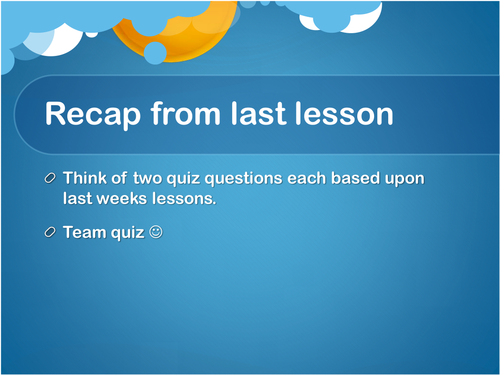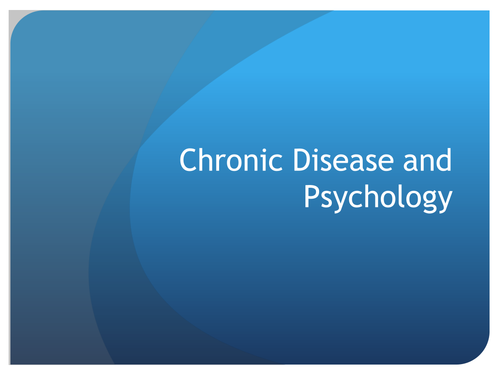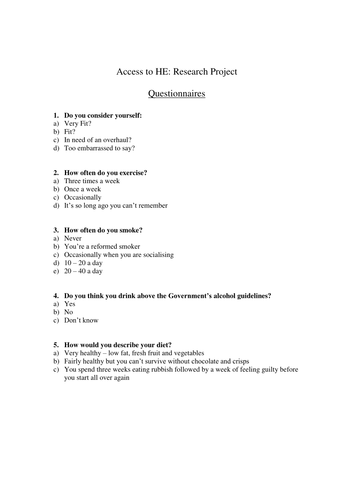
134Uploads
50k+Views
12k+Downloads
Psychology
Bundle

Health and Social Care
An excellent value bundle, saving 69%.
The bundle includes 9 topic areas and hours of activities for students in the following areas:
Anti-discriminatory Practice, Alternative and Complementary health Care, Communication, Community Care, End of Life Care, Ethics, Discriminatory Practices, Multi-Disciplinary Team Work.
Students will develop their ICT, Evluation, Research, Employability, English and Maths skills.

Health Promotion
This is about 4 hours worth of teacher-led tutorial and student activities on health promotion.
Students will cover the following:
Healthy/unhealthy/risk taking behaviours
Why health promotion is used
Organisations on a local and national level which seek to promote health
Health Targets
Models of Behaviour Change
Health Promotion Activities and Techniques
Students will build on their research and evaluation skills.

Social Work-values and Purpose
This is a powerpoint with activities to enable students to explore the values and purpose of social work.
Students will produce an information sheet for a scenario, they will then examine the British Association of Social Work Ethics Committee.
Bundle

Applying for Jobs
This bundle contrains lessons, handouts and activities which cover the following aspects of applying for jobs:
Career Planning and Personal Skills Reviews
Conflict Management and Coping with Setbacks
Stress Awareness
Employability Skills Workshop
Employment Letter Writing
Knowing Where to Look for Jobs

Multi-Disciplinary Team Work
Students will explore the following in relation to health and social care via a range of activities:
To Explain what is meant by the term ‘multi-disciplinary team’ (MDT)
To Evaluate multi-disciplinary team working within the Health and Social Care context
To Analyse the influence of a health care professional and their professional bodies
Bundle

Abnormality
This bundle features models and definitions of abnormality. Students will also be exploring treatments for mental illness and evaluating throughout.

What is classified as Normal and Abnormal behaviour?
This worksheet is best bought as part of a bundle with the accompanying PowerPoint. Students will indicate a list of behaviours and whether they deem them as normal or abnormal. They will then justify their responses. Can be used a starter or a plenary.

Models of Mental Illness
This session will need between 1-2 hours depending on the group. Students should be able to meet the following objectives:
-Identify the five main models of abnormality
-Discuss the implications for treatment of each model
-Evaluate the models of abnormality
They will be able to look in-depth at disorders and treatments which align with the main models. Several activities embedded throughout.

Measuring Crime
Originally created for A-Level learners, this lesson is also appropriate for Foundation degree and Access to HE students studying sociology, criminology and psychology.
The lesson will enable learners to investigate how measuring crime has changed throughout the centuries as well as beginning to build up an idea of the reliability of crime data.
Students will the reasons why crimes are not always report and take an in depth look at White Collar Crime, with reference to two well known case studies.

Explanations of Mental Illness Starter
Students will need some prior knowledge of the biological, psychological and social explanations of mental illness to partake in this Starter activity: Presentation concerns images which relate to either the biological, social or psychological explanations of mental illness. Students will need to work independently to note down which slides they think correspond to which approach. There is some overlap which will generate discussion! I would recommend that you have an impromptu discussion at the end of the starter to enable students to justify their answers, this should be an ideal AfL opportunity.

Labelling Theory and Crime
This lesson introduces students to the idea of labelling theory and what can impact on being labelled as criminal e.g. the circumstance, historical period etc. Modern examples are used e.g. the one legged model to introduce students to this area in a way they can relate to.
Students will embark on a range of activities surrounding Becker, Labelling theory, Producing a Web Page based on the theory and will be briefly introduced to the overlap between sociological/criminological theory and philosophy by looking at John Stuart Mills and Jeremy Bentham.
This should last for around 2 hours depending on the group delivered to.
Bundle

Psychology/Mental Health
A range of full lessons on psychology and mental health. Applicable to A-Level, Health and Social Courses, Psychology Courses and Access to HE Courses.
Bundle

Study Skills/Employability
This bundle is aimed at ages 16-Adults and covers essential aspects of most study skills/employment courses.
It can also be used for tutorials during the lead up to students applying for jobs or applying for university.
This bundle also includes presentation skills, career planning and personal SWOT Analyses.
Bundle

Tutorial
This bundle features key tutorial topics surrounding bullying, drugs, employability, UCAS, alcohol, keeping healthy, radicalisation and more. It is aimed at 14-Adults.
There are numerous activities which include citizenship, values, english, maths, ICT and employability.

Disability
Lesson Focus: To be able to use psychological theory to explain why misconceptions of disability exist.
Some student activities, contentious questions and relevant theory throughout.
Originally aimed at Access to HE Learners but would also be appropriate for other courses.
You may wish to use additional student focused activities to compliment this.

Could Stress Ever Be your Friend?
Session designed for a one hour tutorial during Ofsted week to a group of age 16+ learners but would be suitable for a wider age range.
LO's
Describe what stress is
Discuss outside influences on coping with stress
State causes of stress
Describe a different perspective of stress
Discuss the benefits of stress
Student activities throughout which are encouraged to help students consider the benefits of stress and how to use it to their advantage.
Particularly useful before exams.

Chronic Disease and Psychology
A Full lesson with student activities surrounding psychology and how its theories can be used to explain/support Chronic Disease.
The lesson covers Pain Management/Gate Control Theory, Coping Strategies, Pain Perception, Wound Healing, Behaviour Change Models and Biofeedback.
It was originally written for Access to HE Health and Social Sciences (Level 3) students but can be tailored to fit other courses.

Research Project Preparation
Some detailed lessons and other student resources on research methods which were originally tailored for an Access to HE Course but will also be useful for students embarking on an EPQ or for A-Level students who are exploring research methods.
There are two versions of an interactive tutorial lesson, one aimed at health and another aimed at sociology research projects.
There are activities on questionnaire writing, interviews, data analysis, ethics and report writing structure. These resources would need to be delivered over a series of lessons.
They will need adjusting to suit learners needs.

Psychological Health's impact on Physical Health
This lesson considers to important questions...How does an individuals psychological state impact on their health and well-being? and How might a professional deal with this to support the individual?
Originally designed for Access to Health Professions students, this lesson contains activities and scenarios of a medical/healthcare nature.




















